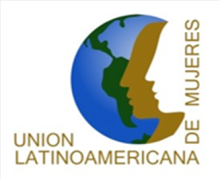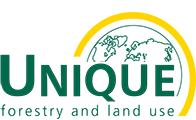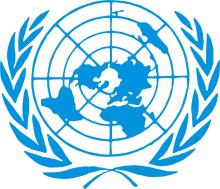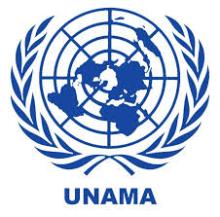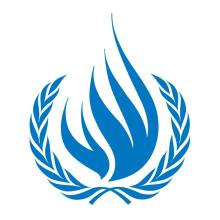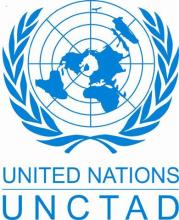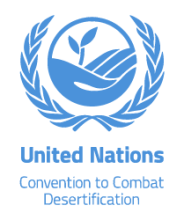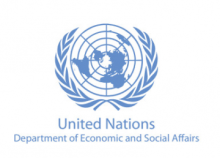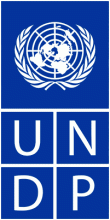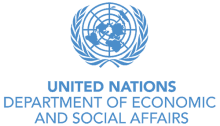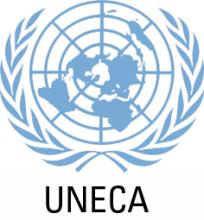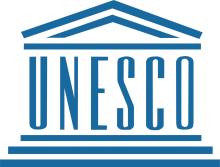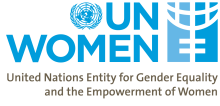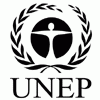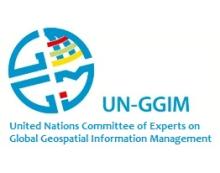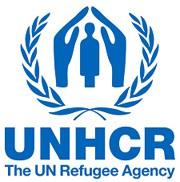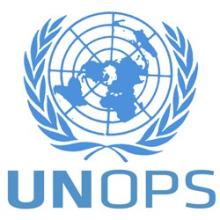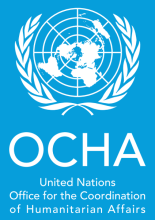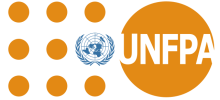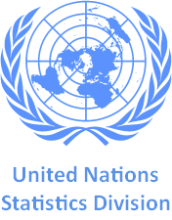A Biblioteca Land Portal inclui recursos de mais de 1.890 provedores de informações nacionais e internacionais. Saiba mais sobre as organizações e instituições que utilizam o Land Portal para partilhar as suas pesquisas, dados e histórias de acesso aberto.
Unión Latinoamericana de Mujeres
Nuestro trabajo
ULAM es una red regional integrada por grupos y organizaciones dirigidas por mujeres para el beneficio de mujeres de orígen rural e indígena afectadas social, cultural y económicamente, por prácticas y políticas mineras.
La convicción que juntas y colectivamente debemos luchar porque se reconozca y se tomen medidas parar frenar y prevenir el impacto negativo de la actividad minera en la mujer; une en hermandad a todas las asociaciones que forman parte de la red.
Visión: Una América Latina donde las mujeres cuentan con recursos para participar en igualdad de condiciones en la construcción de sociedades justas, libres de contaminación y en donde las personas podamos convivir con la naturaleza en armonía.
Misión: Fortalecer la voz, impacto e influencia de los grupos miembros, de manera que gobiernos y corporaciones respondan a las preocupaciones de las mujeres afectadas por proyectos y políticas mineras.
UNIQUE forestry and land use GmbH
UNIQUE forestry and land use GmbH is a leading international consulting firm that provides expert services and advice on forest management and sustainable land use.
United Nations
United Nations
The United Nations is an international organization founded in 1945. It is currently made up of 193 Member States. The mission and work of the United Nations are guided by the purposes and principles contained in its founding Charter.
Due to the powers vested in its Charter and its unique international character, the United Nations can take action on the issues confronting humanity in the 21st century, such as peace and security, climate change, sustainable development, human rights, disarmament, terrorism, humanitarian and health emergencies, gender equality, governance, food production, and more.
The UN also provides a forum for its members to express their views in the General Assembly, the Security Council, the Economic and Social Council, and other bodies and committees. By enabling dialogue between its members, and by hosting negotiations, the Organization has become a mechanism for governments to find areas of agreement and solve problems together.
The UN's Chief Administrative Officer is the Secretary-General.
United Nations Assistance Mission in Afghanistan
UNAMA is a political mission that provides political good offices in Afghanistan; works with and supports the government; supports the process of peace and reconciliation; monitors and promotes human rights and the protection of civilians in armed conflict; promotes good governance; and encourages regional cooperation.
UNAMA was established by the UN Security Council Resolution 1401 in March 2002 at the request of the Government of the Islamic Republic of Afghanistan. Its mandate is reviewed annually with the latest mandate renewal being on 15 March 2016 when the Security Council unanimously adopted Resolution 2274 (2016).
Resolution 2274 calls for UNAMA and the Secretary-General’s Special Representative for Afghanistan (SRSG) to continue leading and coordinating international civilian efforts in assisting Afghanistan, guided by the principle of reinforcing Afghan sovereignty, leadership and ownership. In doing so, the resolution calls upon UNAMA and the SRSG to promote more coherent support by the international community to the Government of Afghanistan’s development and governance priorities.
UNAMA maintains a permanent field presence in 12 provinces across Afghanistan and liaison offices in Islamabad (Pakistan) and Tehran (Iran). In 2016 staff numbers are expected to stand at: 376 international, 1,163 national and 79 UN Volunteers.
United Nations Committee on Economic, Social and Cultural Rights
The Committee on Economic, Social and Cultural Rights (CESCR) is the body of 18 independent experts that monitors implementation of the International Covenant on Economic, Social and Cultural Rightsby its States parties. The Committee was established under ECOSOC Resolution 1985/17 of 28 May 1985 to carry out the monitoring functions assigned to the United Nations Economic and Social Council (ECOSOC) in Part IV of the Covenant.
All States parties are obliged to submit regular reports to the Committee on how the rights are being implemented. States must report initially within two years of accepting the Covenant and thereafter every five years. The Committee examines each report and addresses its concerns and recommendations to the State party in the form of “concluding observations”.
In addition to the reporting procedure, the Optional Protocol to the International Covenant on Economic, Social and Cultural Rights , which entered into force on 5th May 2013, provides the Committee competence to receive and consider communications from individuals claiming that their rights under the Covenant have been violated. The Committee may also, under certain circumstances, undertake inquiries on grave or systematic violations of any of the economic, social and cultural rights set forth in the Covenant, and consider inter-state complaints.
The Committee meets in Geneva and normally holds two sessions per year, consisting of a three-week plenary and a one-week pre-sessional working group.
The Committee also publishes its interpretation of the provisions of the Covenant, known as general comments.
United Nations Conference on Sustainable Development, Rio+20
The United Nations Conference on Sustainable Development - or Rio+20 - took place in Rio de Janeiro, Brazil on 20-22 June 2012. It resulted in a focused political outcome document which contains clear and practical measures for implementing sustainable development.
In Rio, Member States decided to launch a process to develop a set of Sustainable Development Goals (SDGs), which will build upon the Millennium Development Goals and converge with the post 2015 development agenda.
The Conference also adopted ground-breaking guidelines on green economy policies.
Governments also decided to establish an intergovernmental process under the General Assembly to prepare options on a strategy for sustainable development financing.
Governments also agreed to strengthen the United Nations Environment Programme (UNEP) on several fronts with action to be taken during the 67th session of the General Assembly.
They also agreed to establish a high-level political forum for sustainable development. Decisions on its detailed form are expected to be taken during the upcoming session of the General Assembly, with the aim of having the first session of the forum at the beginning of the 68th session of the Assembly.
Governments also requested the United Nations Statistical Commission, in consultation with relevant United Nations system entities and other relevant organizations, to launch a programme of work in the area of measures of progress to complement gross domestic product in order to better inform policy decisions.
Governments also adopted the 10-year framework of programmes on sustainable consumption and production patterns, as contained in document A/CONF.216/5, and invited the General Assembly, at its sixty-seventh session, to designate a Member State body to take any necessary steps to fully operationalize the framework.
The Conference also took forward-looking decisions on a number of thematic areas, including energy, food security, oceans, cities, and decided to convene a Third International Conference on SIDS in 2014 .
.
The Rio +20 Conference also galvanized the attention of thousands of representatives of the UN system and major groups. It resulted in over 700 voluntary commitments and witnessed the formation of new partnerships to advance sustainable development.
United Nations Conference on Trade and Development
Globalization, including a phenomenal expansion of trade, has helped lift millions out of poverty. But not nearly enough people have benefited. And tremendous challenges remain.
We support developing countries to access the benefits of a globalized economy more fairly and effectively. And we help equip them to deal with the potential drawbacks of greater economic integration. To do this, we provide analysis, consensus-building, and technical assistance. This helps them to use trade, investment, finance, and technology as vehicles for inclusive and sustainable development.
Working at the national, regional, and global level, our efforts help countries to:
- Diversify economies to make them less dependent on commodities
- Limit their exposure to financial volatility and debt
- Attract investment and make it more development friendly
- Increase access to digital technologies
- Promote entrepreneurship and innovation
- Help local firms move up value chains
- Speed up the flow of goods across borders
- Protect consumers from abuse
- Curb regulations that stifle competition
- Adapt to climate change and use natural resources more effectively
Together with other UN departments and agencies, we measure progress by the Sustainable Development Goals, as set out in Agenda 2030.
We also support implementation of Financing for Development, as mandated by the global community in the 2015 Addis Ababa Agenda, together with four other major institutional stakeholders: the World Bank, the International Monetary Fund, the World Trade Organization, and the United Nations Development Programme.
While we work mainly with governments, to effectively deal with the magnitude and complexity of meeting the Sustainable Development Goals, we believe that partnerships and closer cooperation with the private sector and civil society are essential.
Ultimately, we are serving the citizens of the 194 countries that make up our organization. Our goal is prosperity for all.
United Nations Convention to Combat Desertification
The United Nations Convention to Combat Desertification in Those Countries Experiencing Serious Drought and/or Desertification, Particularly in Africa (UNCCD) is a Convention to combat desertification and mitigate the effects of drought through national action programs that incorporate long-term strategies supported by international cooperation and partnership arrangements.
United Nations Department of Economic and Social Affairs
Who we are…
The United Nations Department of Economic and Social Affairs (DESA) works closely with governments and stakeholders to help countries around the world meet their economic, social and environmental goals.
As the Secretariat entity responsible for the development pillar of the United Nations, our work addresses a range of cross-cutting issues that affect peoples’ lives and livelihoods. From poverty reduction to governance to finance to the environment, DESA’s work is about human progress for all, especially the most vulnerable. We are fundamentally concerned, not only with global prosperity today, but also for tomorrow.
DESA’s work is guided by the United Nations development agenda, which is rooted in the values of equality, solidarity, tolerance, respect for nature and mutual responsibility. Furthermore, with a focus on equitable participation by all people, the United Nations development agenda has unique, universal legitimacy.
Our vision for human progress goes beyond promoting global agreements and is fundamentally about action. Working closely with governments and other partners, DESA seeks concrete solutions. We are committed to addressing the world’s most pressing concerns and taking the necessary steps to help create a better world for all – a world that is inclusive, prosperous and sustainable.
What we do…
DESA’s work programme can be categorized into three areas: norm-setting, analysis, and capacity-building. Whether by supporting policy-making bodies, facilitating major UN conferences, projecting trends in demography, publishing top quality economic analysis, or helping countries develop capacity, DESA’s influence has reach far beyond the doors of the UN.
United Nations Development Fund for Women
The United Nations Development Fund for Women, commonly known as UNIFEM (from the French "Fonds de développement des Nations unies pour la femme") was established in December 1976 originally as the Voluntary Fund for the United Nations Decade for Women in the International Women's Year. Since 1976 it has supported women’s empowerment and gender equality through its programme offices and links with women’s organizations in the major regions of the world. Its work on gender responsive budgets began in 1996 in Southern Africa and has expanded to include East Africa, Southeast Asia, South Asia, Central America and the Andean region. It has worked to increase awareness throughout the UN system of gender responsive budgets as a tool to strengthen economic governance in all countries.
In January 2011, UNIFEM was merged into UN Women, a composite entity of the UN, with International Research and Training Institute for the Advancement of Women (INSTRAW), Office of the Special Adviser on Gender Issues (OSAGI), and Division for the Advancement of Women (DAW).
United Nations Development Programme
UNDP works in some 170 countries and territories, helping to achieve the eradication of poverty, and the reduction of inequalities and exclusion. We help countries to develop policies, leadership skills, partnering abilities, institutional capabilities and build resilience in order to sustain development results.
Inclusive growth, better services, environmental sustainability, good governance, and security are fundamental to development progress. We offer our expertise in development thinking and practice, and our decades of experience at country level, to support countries to meet their development aspirations and to bring the voices of the world’s peoples into deliberations.
In 2016, UNDP is continuing its work to support the 2030 Agenda for Sustainable Development and the 17 new Sustainable Development Goals (SDGs), or Global Goals, as they help shape global sustainable development for the next 15 years.
UNDP focuses on helping countries build and share solutions in three main areas:
In all our activities, we encourage the protection of human rights and the empowerment of women, minorities and the poorest and most vulnerable.
United Nations Economic and Social Commission for Asia and the Pacific
The Economic and Social Commission for Asia and the Pacific (UNESCAP or ESCAP) is one of the five regional commissions of the United Nations Economic and Social Council, under the administrative direction of the United Nations headquarters. It was established in 1947 (then as the UN Economic Commission for Asia and the Far East, ECAFE) to encourage economic cooperation among its member states. The name was changed to the current in 1974. ESCAP has 53 member States and nine Associate members, home to more than two-third of the world population. As well as countries in Asia and the Pacific, it includes France, the Netherlands, the United Kingdom and the United States.
ESCAP's regional focus is managing globalization through programs in environmentally sustainable development, trade, and human rights.
United Nations Economic and Social Council
The United Nations Economic and Social Council (ECOSOC; French: Conseil économique et social des Nations unies, CESNU) is one of the six principal organs of the United Nations, responsible for coordinating the economic and social fields of the organisation, specifically in regards to the 15 specialised agencies, the eight functional commissions and the five regional commissions under its jurisdiction.
The Council serves as the central forum for discussing international economic and social issues and formulating policy recommendations addressed to member states and the United Nations system. A number of non-governmental organisations have been granted consultative status to the Council to participate in the work of the United Nations.
United Nations Economic Commission for Africa
Established by the Economic and Social Council (ECOSOC) of the United Nations (UN) in 1958 as one of the UN's five regional commissions, ECA's mandate is to promote the economic and social development of its member States, foster intra-regional integration, and promote international cooperation for Africa's development.
Made up of 54 member States, and playing a dual role as a regional arm of the UN and as a key component of the African institutional landscape, ECA is well positioned to make unique contributions to address the Continent’s development challenges.
ECA’s thematic areas of focus are as follows:
- Macroeconomic Policy
- Regional Integration and Trade
- Social Development
- Natural Resources
- Innovation and Technology
- Gender
- Governance
United Nations Educational Scientific and Cultural Organization
In 1945, UNESCO was created in order to respond to the firm belief of nations, forged by two world wars in less than a generation, that political and economic agreements are not enough to build a lasting peace. Peace must be established on the basis of humanity’s moral and intellectual solidarity.
UNESCO strives to build networks among nations that enable this kind of solidarity, by:
- Mobilizing for education: so that every child, boy or girl, has access to quality education as a fundamental human right and as a prerequisite for human development.
- Building intercultural understanding: through protection of heritage and support for cultural diversity. UNESCO created the idea of World Heritage to protect sites of outstanding universal value.
- Pursuing scientific cooperation: such as early warning systems for tsunamis or trans-boundary water management agreements, to strengthen ties between nations and societies.
- Protecting freedom of expression: an essential condition for democracy, development and human dignity.
United Nations Entity for Gender Equality and the Empowerment of Women (UNWOMEN)
In July 2010, the United Nations General Assembly created UN Women, the United Nations Entity for Gender Equality and the Empowerment of Women.
In doing so, UN Member States took an historic step in accelerating the Organization’s goals on gender equality and the empowerment of women.
The creation of UN Women came about as part of the UN reform agenda, bringing together resources and mandates for greater impact. It merges and builds on the important work of four previously distinct parts of the UN system, which focused exclusively on gender equality and women’s empowerment:
- Division for the Advancement of Women (DAW)
- International Research and Training Institute for the Advancement of Women (INSTRAW)
- Office of the Special Adviser on Gender Issues and Advancement of Women (OSAGI)
- United Nations Development Fund for Women (UNIFEM)
The main roles of UN Women are:
- To support inter-governmental bodies, such as the Commission on the Status of Women, in their formulation of policies, global standards and norms.
- To help Member States to implement these standards, standing ready to provide suitable technical and financial support to those countries that request it, and to forge effective partnerships with civil society.
- To hold the UN system accountable for its own commitments on gender equality, including regular monitoring of system-wide progress.
United Nations Environment Programme
The United Nations Environment Programme (UNEP) is the leading global environmental authority that sets the global environmental agenda, promotes the coherent implementation of the environmental dimension of sustainable development within the United Nations system and serves as an authoritative advocate for the global environment.
UNEP work encompasses:
- Assessing global, regional and national environmental conditions and trends
- Developing international and national environmental instruments
- Strengthening institutions for the wise management of the environment
Mission
"To provide leadership and encourage partnership in caring for the environment by inspiring, informing, and enabling nations and peoples to improve their quality of life without compromising that of future generations."
United Nations Forum on Forests
The United Nations Forum on Forests (UNFF) is a high-level intergovernmental policy forum. The forum includes all United Nations Member States and Permanent Observers, the UNFF Secretariat, the Collaborative Partnership on Forests, Regional Organizations and Processes and Major Groups.
United Nations Framework Convention on Climate Change
The UNFCCC entered into force on 21 March 1994. Today, it has near-universal membership. The 197 countries that have ratified the Convention are called Parties to the Convention.
The UNFCCC is a “Rio Convention”, one of three adopted at the “Rio Earth Summit” in 1992. Its sister Rio Conventions are the UN Convention on Biological Diversity and the Convention to Combat Desertification. The three are intrinsically linked. It is in this context that the Joint Liaison Group was set up to boost cooperation among the three Conventions, with the ultimate aim of developing synergies in their activities on issues of mutual concern. It now also incorporates the Ramsar Convention on Wetlands.
Preventing “dangerous” human interference with the climate system is the ultimate aim of the UNFCCC.
United Nations Global Compact
The world's largestcorporate sustainability initiative
A call to companies to align strategies and operations with universal principles on human rights, labour, environment and anti-corruption, and take actions that advance societal goals.
At the UN Global Compact, we aim to mobilize a global movement of sustainable companies and stakeholders to create the world we want. That’s our vision.
To make this happen, the UN Global Compact supports companies to:
- Do business responsibly by aligning their strategies and operations with Ten Principles on human rights, labour, environment and anti-corruption; and
- Take strategic actions to advance broader societal goals, such as the UN Sustainable Development Goals, with an emphasis on collaboration and innovation.
United Nations Global Geospatial Information Management
On 27 July 2016, and following a year-long consultative process on the comprehensive review of the work and operations of the Committee of Experts on Global Geospatial Information Management (UN-GGIM), the Economic and Social Council (ECOSOC) adopted a draft resolution (E/2016/L.28) entitled "Strengthening institutional arrangements on geospatial information management". The draft resolution was facilitated and submitted by the Permanent Mission of Mexico, and co-sponsored by Argentina, Australia, Brazil, Burkina Faso, Chile, China, Germany, Jamaica, Japan, Sweden, the United Kingdom, and the United States of America.
Introduced to ECOSOC by UN-GGIM Co-Chair, Mr. Rolando Ocampo, the resolution acknowledges the considerable achievements and progress made by the Committee of Experts over the past five years in the field of geospatial information management, and that the Committee is well placed to continue to contribute to the work of the United Nations, especially in the context of assisting Member States to implement the 2030 Agenda for Sustainable Development, the Sendai Framework for Disaster Risk Reduction, the Paris Agreement on Climate Change and the SIDS Accelerated Modalities of Action (SAMOA) Pathway.
The efforts of the Committee of Experts to streamline the work of the four current subsidiary bodies of ECOSOC in the field of geospatial information management have been particularly welcomed by Member States. These subsidiary organs are: the Committee of Experts on Global Geospatial Information Management; the two UN-Regional Cartographic Conferences for Asia and the Pacific and the Americas respectively; and the UN Conference on the Standardization of Geographical Names and its related Group of Experts.
Further, the establishment of a strong and operational regional infrastructure, composed of the five regional technical geospatial information committees that report to the Committee of Experts, recognize and encapsulate the importance of strengthening coordination, capacity building and coherence of global geospatial information management, especially in developing countries.
In adopting the draft resolution on strengthening institutional arrangements on geospatial information management, ECOSOC agreed to:
- 1. Broaden and strengthen the mandate of the Committee of Experts as the relevant body on geospatial information consisting of government experts, in a cost-neutral manner;
- 2. Cease forthwith the formal United Nations Regional Cartographic Conferences for Asia and the Pacific and the Americas, in order to streamline and avoid duplication, with the substantive mandates and obligations of the UNRCC-Asia Pacific and UNRCC-Americas assumed by the Committee of Experts at the global level, and their technical and substantive activities at the regional and national level assumed by UN-GGIM-AP and UN-GGIM: Americas, respectively;
- 3. Confirmed the inclusion of the annual session of the Committee of Experts within the regular United Nations calendar of conferences and meetings under the Council, inclusive of the provision of dedicated United Nations conference management services and full support for the annual session of the Committee;
- 4. Encourage Member States to provide voluntary contributions, and otherwise request the Secretary-General to try to mobilize additional resources, including through the means of trust funds and other sources, as appropriate, to support the activities of the Committee, and to cover the cost of participation of three government representative from each of the special situation country groupings in the Committee of Experts;
- 5. Change the item on the Council's agenda from "Cartography" to "Geospatial Information" and invite thereunder the UN Group of Experts on Geographical Names and the UN Conference on the Standardization of Geographical Names to continue to report on geographical names and the Committee on Global Geospatial Information Management to report on all matters relating to geography, geospatial information and related topics.
Noting the increasing role and relevance of the Committee of Experts and its acknowledged efforts in streamlining the subsidiary bodies of the Council on geospatial information matters, the Council requested that the Committee of Experts report back to the Council, no later than in 5 years’ time, on the implementation of the resolution as well as on its continued efforts to work with the Statistical Commission and with the entire United Nations system, and to integrate geospatial and statistical information systems and, in this context, examine the strengthening of the institutional arrangements of the Committee.
United Nations High Commissioner for Refugees
For over 65 years, the United Nations High Commissioner for Refugees (UNHCR) has been protecting the rights and well-being of refugees all over the world.
We work to ensure that everybody has the right to seek asylum and find safe refuge, having fled violence, persecution, war or disaster at home.
Since 1950, we have faced multiple crises on multiple continents, and provided vital assistance to refugees, asylum-seekers, internally displacedand stateless people, many of whom have nobody left to turn to.
We help to save lives and build better futures for millions forced from home.
United Nations Human Settlements Programme
UN-Habitat is the United Nations programme working towards a better urban future.
Its mission is to promote socially and environmentally sustainable human settlements development and the achievement of adequate shelter for all. Cities are facing unprecedented demographic, environmental, economic, social and spatial challenges. There has been a phenomenal shift towards urbanization, with 6 out of every 10 people in the world expected to reside in urban areas by 2030. Over 90 per cent of this growth will take place in Africa, Asia, Latin America, and the Caribbean. In the absence of effective urban planning, the consequences of this rapid urbanization will be dramatic. In many places around the world, the effects can already be felt: lack of proper housing and growth of slums, inadequate and out-dated infrastructure – be it roads, public transport, water, sanitation, or electricity – escalating poverty and unemployment, safety and crime problems, pollution and health issues, as well as poorly managed natural or man-made disasters and other catastrophes due to the effects of climate change. Mindsets, policies, and approaches towards urbanization need to change in order for the growth of cities and urban areas to be turned into opportunities that will leave nobody behind. UN-Habitat, the United Nations programme for human settlements, is at the helm of that change, assuming a natural leadership and catalytic role in urban matters. Mandated by the UN General Assembly in 1978 to address the issues of urban growth, it is a knowledgeable institution on urban development processes, and understands the aspirations of cities and their residents. For close to forty years, UN-Habitat has been working in human settlements throughout the world, focusing on building a brighter future for villages, towns, and cities of all sizes. Because of these four decades of extensive experience, from the highest levels of policy to a range of specific technical issues, UN-Habitat has gained a unique and a universally acknowledged expertise in all things urban. This has placed UN-Habitat in the best position to provide answers and achievable solutions to the current challenges faced by our cities. UN-Habitat is capitalizing on its experience and position to work with partners in order to formulate the urban vision of tomorrow. It works to ensure that cities become inclusive and affordable drivers of economic growth and social development.
United Nations Interagency Framework Team for Preventive Action
The United Nations Interagency Framework Team for Preventive Action (the Framework Team or FT) is an internal United Nations (UN) support mechanism that assists UN Resident Coordinators (RCs) and UN Country Teams (UNCTs) in developing conict prevention strategies and programmes. The FT works closely with UN departments and UN agencies, funds and programmes (UN AFPs) to improve programme effectiveness through better interagency collaboration within Headquarters, and between Headquarters and the eld.
The framework team coordinates the partnership between the United Nations (UN) and the European Union (EU) entitled for Preventing and Managing Land and Natural Resources Conflict’ on behalf of the partner agencies: the UN Department of Economic and Social Aairs (UNDESA), the UN Development Programme (UNDP), the UN Environment Programme (UNEP), the UN Human Settlements Programme (UN-HABITAT), the UN Department of Political Aairs (DPA), and the Peacebuilding Support Oce (PBSO).
United Nations Office for Project Services
The United Nations Office for Project Services (UNOPS) is an operational arm of the United Nations, dedicated to implementing projects for the United Nations System, international financial institutions, governments and other partners around the world.
United Nations Office for the Coordination of Humanitarian Affairs
The United Nations Office for the Coordination of Humanitarian Affairs (OCHA) is a United Nations (UN) body formed in December 1991 by General Assembly Resolution 46/182. The resolution was designed to strengthen the UN's response to complex emergencies and natural disasters.
Earlier UN organizations with similar tasks were the Department of Humanitarian Affairs (DHA), and its predecessor, the Office of the United Nations Disaster Relief Coordinator (UNDRO). In 1998, due to reorganization, DHA merged into OCHA and was designed to be the UN focal point on major disasters. It is a sitting observer of the United Nations Development Group.
United Nations Peacebuilding Support Office
he Peacebuilding Support Office (PBSO) was established to assist and support the Peacebuilding Commission (PBC) with strategic advice and policy guidance, administer the Peacebuilding Fund (PBF) and to support the Secretary-General in coordinating United Nations agencies in their peacebuilding efforts.
In the founding resolutions (A/RES/60/180 and S/RES/1645(2005)) establishing the Peacebuilding Commission, the United Nations General Assembly and the Security Council requested “the Secretary-General to establish, within the Secretariat, from within existing resources, a small peacebuilding support office staffed by qualified experts to assist and support the Commission”.
The Office comprises the Peacebuilding Commission Support Branch, the Peacebuilding Strategy and Partnerships Branch, and the Financing for Peacebuilding Branch.
United Nations Population Fund
UNFPA is the lead UN agency for delivering a world where every pregnancy is wanted, every childbirth is safe and every young person's potential is fulfilled.
UNFPA supports:
1. Reproductive health care for women and youth in more than 150 countries – home to more than 80 per cent of the world’s population
2. The health of pregnant women, especially the 10-15 million who face life-threatening complications each year
3. Reliable access to modern contraceptives sufficient to benefit 20 million women a year
4. Training of thousands of health workers to help ensure at least 80 per cent of all childbirths are supervised by skilled attendants
5. Prevention of gender-based violence, which affects 1 in 3 women
6. Abandonment of female genital mutilation, which harms 3 million girls annually
7. Prevention of teen pregnancies, complications of which are a leading cause of death for girls 15-19 years old
8. Efforts to end child marriage, which could affect an estimated 70 million girls over the next 5 years
9. Delivery of safe birth supplies, dignity kits and other life-saving materials to survivors of conflict and natural disaster
10. Censuses, data collection and analyses, which are essential for development planning.
UNFPA expands the possibilities for women and young people to lead healthy and productive lives.
Since UNFPA started working in 1969, the number – and rate – of women dying from complications of pregnancy or childbirth has been halved. Families are smaller and healthier. Young people are more connected and empowered than ever before.
United Nations Research Institute for Social Development
Our Mission
The United Nations Research Institute for Social Development (UNRISD) is an autonomous research institute within the UN system that undertakes multidisciplinary research and policy analysis on the social dimensions of contemporary development issues.
Through our work we aim to ensure that social equity, inclusion and justice are central to development thinking, policy and practice. To this end, we:
focus on the often neglected social content and impacts of development processes and the role of social institutions, relations and actors in shaping development policies and pathways;
engage researchers, policy makers and civil society actors from around the world in generating and sharing knowledge, in order to shape policy within and beyond the UN system;
mobilize and strengthen the research capacity of individuals and institutions in developing countries through collaborative inquiry; and
provide a space for the exchange of ideas, giving prominence to marginalized viewpoints, often challenging mainstream development thinking and offering alternative policy options.
Our Mandate
UNRISD was established in 1963 as an autonomous space within the UN system for the conduct of policy-relevant, cutting-edge research on social development that is pertinent to the work of the United Nations Secretariat; regional commissions and specialized agencies; and national institutions.
United Nations Statistics Division
The United Nations Statistics Division is committed to the advancement of the global statistical system. We compile and disseminate global statistical information, develop standards and norms for statistical activities, and support countries' efforts to strengthen their national statistical systems. We facilitate the coordination of international statistical activities and support the functioning of the United Nations Statistical Commission as the apex entity of the global statistical system.

